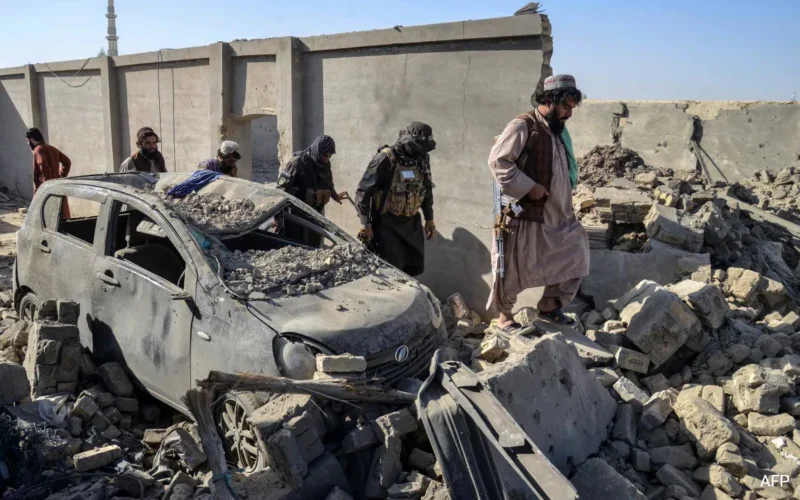Islamabad/Kabul (Rajeev Sharma): Cross-border tensions surged once again late Friday after Pakistan reportedly launched airstrikes inside Afghan territory, just hours after a fragile two-day ceasefire came to an end. The renewed violence threatens to derail ongoing diplomatic efforts aimed at easing hostilities between the two countries.
Afghan security officials confirmed that Pakistani aircraft targeted multiple locations in the southeastern province of Paktika and surrounding areas near the frontier. Among the sites hit was a civilian residence in Khandar village, where authorities claim several people lost their lives.
“Bombardments were carried out in three separate areas close to the border,” said Mohammadullah Amini Mavia, a police spokesperson in the region. “There are confirmed casualties, including non-combatants.”
Islamabad has yet to officially respond to the allegations, and there has been no independent verification of the claims from either side.
The attacks mark a swift end to a short-lived truce that temporarily halted intense clashes earlier in the week. The ceasefire, which began Wednesday, provided a brief pause after several days of escalating confrontations that had already resulted in dozens of deaths and many more injuries.
The calm unraveled shortly after a deadly suicide bombing occurred on the Pakistani side of the border. Officials in Pakistan’s Khyber Pakhtunkhwa province reported that a vehicle packed with explosives targeted a security facility in Mir Ali, a volatile region near the Afghan frontier.
The blast, which was followed by a firefight, left at least one Pakistani soldier and six suspected militants dead, according to local police. Responsibility for the attack was claimed by a breakaway faction of the Tehrik-i-Taliban Pakistan (TTP), led by Hafiz Gul Bahadur.
The TTP, which Pakistan classifies as a terrorist organization, is ideologically linked to the Afghan Taliban but operates independently. Islamabad has long accused the group of launching attacks from sanctuaries across the border, a claim the Taliban government in Kabul denies.
In Kabul, Taliban spokesperson Zabiullah Mujahid stated that Afghanistan remains committed to peaceful relations with Pakistan and emphasized that the Islamic Emirate has no interest in military conflict.
“Afghanistan’s position is principled—we seek stability and peace, not war,” Mujahid said, noting that a Taliban delegation was preparing to participate in discussions facilitated by Qatar.
Pakistani state media also reported that a high-ranking delegation from Islamabad is expected to arrive in Doha soon for talks, although official channels have yet to release details. Pakistan’s Foreign Ministry has maintained a cautious tone, with spokesperson Shafqat Ali Khan declining to confirm the meeting but suggesting updates would follow when appropriate.
Tensions between Pakistan and Afghanistan have grown increasingly strained in recent months, as Islamabad faces a surge in militant activity. Since early this year, Pakistan has recorded a rise in attacks, many of which are believed to have been orchestrated by TTP elements allegedly operating from Afghan territory.
While Pakistan insists its recent cross-border military action was aimed strictly at militant positions, Afghan officials argue that such strikes risk undermining diplomatic efforts and endangering civilians.
With both nations now sending envoys to Qatar, international observers hope the talks can serve as a turning point. But after years of mistrust and cycles of violence, many remain skeptical that a lasting resolution is within reach.

